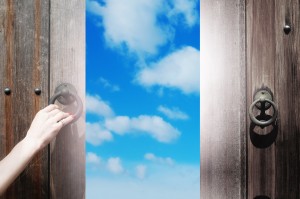If you watch a ‘60s movie, you’ll notice neighbours saying hello to each other when they go to work, come home, or mow the lawn. It used to be the friendly thing to do. Saying hello was also a good way to keep ties with your community and build support for positive mental health.
In today’s world people are less open to saying hello. There are reasons you may not want to say hello. Hello is a word that opens up a conversation. What do you say after hello? What could you and a stranger possibly have in common? Say hello and find out. But that also leaves you vulnerable in a very personal way. You are putting a piece of yourself out to be judged by someone you know nothing about.
We’ve been taught that the world today is not a nice place. The stranger you just said hello to might be hiding some secret or hold moral values totally incompatible with yours. The person might be a killer, kidnapper, or cyber bully. The person may even have mental health issues. Stigma loves silence. But what if the person is the nicest, most sincere person you’ve ever met? Do you know the possibilities you’re throwing away by not saying hello?
Hello can create a positive emotional moment. It can lift you out of your anxiety and dark space. It can put you into the present as opposed to being stuck in some past or future situation.
Hello keeps open social channels for positive mental health. What ‘hello’ does is break the silence between people. It’s a starting point to get to know each other. If you’re depressed and talk to at least one neighbour, the isolation depression brings lessens. After all, why wait for friends to visit and cheer you up when you can walk outside and visit a neighbour who’ll do the same thing? A friendly visit with someone who listens to your problems and anxieties can help you deal with anxiety and depression.
Even if you’re not depressed or in a negative mood, saying ‘hello’ to a stranger may brighten the person’s day. Hello is the easiest, simplest way of acknowledging someone’s presence. Yes you exist. You’re not invisible. You matter because someone noticed you.
* Click here to find out more about Terezia Farkas and her Depression help and click here to follow Terezia on Twitter.


